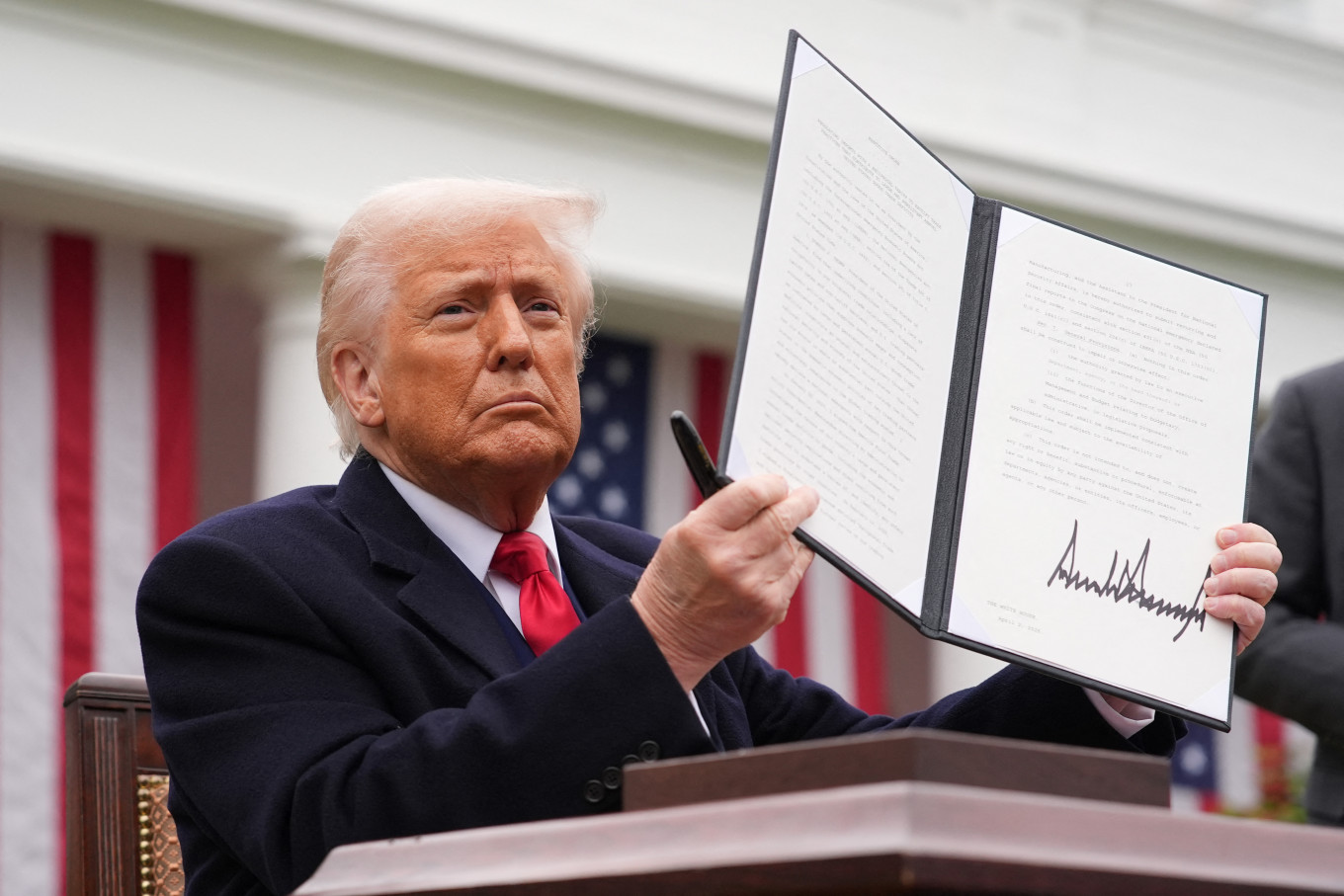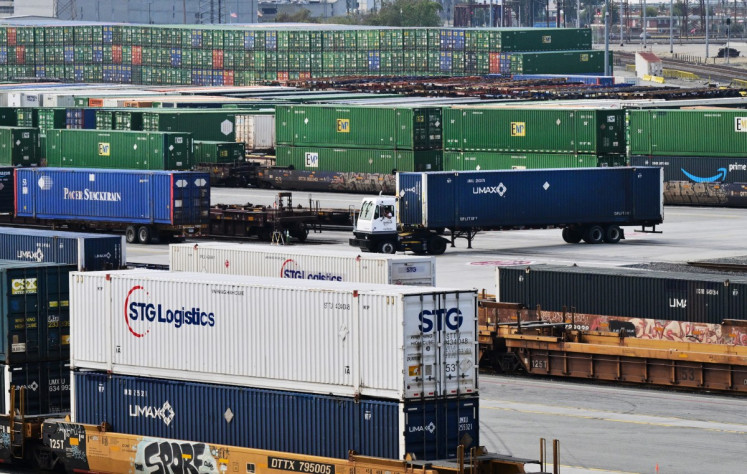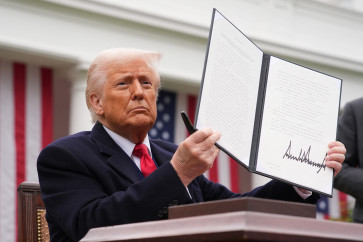Popular Reads
Top Results
Can't find what you're looking for?
View all search resultsPopular Reads
Top Results
Can't find what you're looking for?
View all search resultsThe impact of Trump’s tariffs: Is globalization ending?
Countries will focus on domestic production and encourage companies to shift overseas production back home, widely known as reshoring.
Change text size
Gift Premium Articles
to Anyone
T
he world’s economy has long been driven by globalization, which supports the thesis that a free trade agreement will lead to a more efficient way of doing business and therefore have a positive impact on the global economy. However, in recent years, the trend has begun to shift with the emergence of a new wave of inward-looking economic agendas in some countries.
What are the triggers? Globalization has led to a global trade imbalance.
China’s economy has emerged as an economic power fueled by massive exports, which has resulted in a large trade surplus creating a large trade imbalance with trade partners. This surplus is largely caused by weak domestic demand, which drives China to turn to foreign markets to sell its products. China uses its trade surplus to compensate for weak domestic demand and a crisis-ridden real estate market.
The imbalance has caused rising discontent, particularly for countries with large trade deficits, particularly the United States. The rise President Donald Trump brought back protectionist policies to reduce these imbalances. Trump’s trade policies continue to be based on the tagline of “America First”, aiming to reduce the trade deficit between the US and trade partners like China.
The argument is that the US’s trade relationships in the past have led to job losses, a declining manufacturing sector and a widening trade deficit, despite the advantage the US companies enjoy when outsourcing their business abroad.
In an executive order released last week, President Trump imposed new tariffs on countries that fail to reach updated trade agreements with the US. Meanwhile, a tariff was lowered for countries that have reached deals with the US. The US government uses tariffs not only to reduce the trade deficit, but also as a means of negotiation to push for a more favorable economic agenda that will benefit the US.
The economic impact of these worldwide US tariffs may vary but will still be mostly negative. US industries may reap short-term benefits from reduced foreign product competition. Other industries, such as agriculture, as well as oil and gas, may also benefit from the trade deals reached between the US and its trading partners.



















